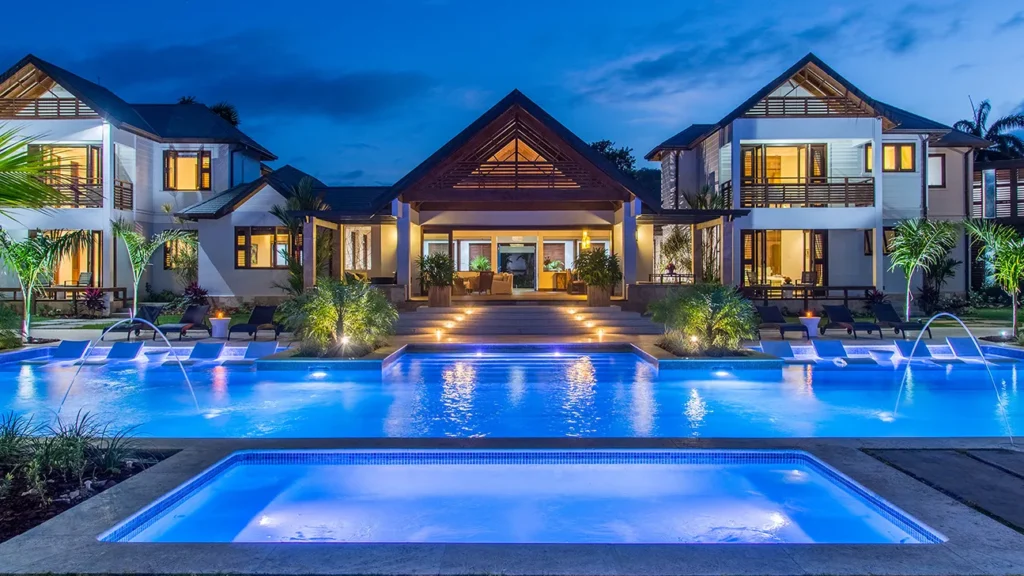As you prepare to purchase your holiday rental property, the excitement of getting it listed and generating income is probably top of mind. You might be eager to create an Airbnb listing and open your doors to guests immediately. After all, it seems like all you need is an account and a property, right?
But while it’s technically possible to set up your listing in minutes, there are some crucial factors to consider before diving in. The key to a successful holiday rental is not just about listing it quickly—it’s about setting it up properly to maximize bookings, build trust with guests, and ensure a smooth operation from the start.
Let’s walk through some of the most important aspects to consider before listing your holiday rental.
Timing Is Everything: Should You List Right Away?
After purchasing a holiday rental, many owners make the mistake of rushing to list their property online without making sure it’s fully ready. This can seem tempting—after all, the sooner it’s live, the sooner you start earning—but listing too soon can actually hurt your long-term success.
Airbnb, like many other platforms, gives new listings a visibility boost in the first few weeks. This is a powerful opportunity to stand out and attract your first wave of guests. However, if your listing is not fully prepared with high-quality photos, competitive pricing, and professional touches, you’re likely to miss out on this golden opportunity.
Launching with incomplete or outdated photos, or even a lack of detailed information about your property, can break trust with potential guests. Airbnb is built on trust, and guests rely heavily on accurate photos and descriptions when deciding where to stay. A listing with poorly chosen photos—or worse, no photos at all—immediately raises red flags and can lead to fewer bookings and lower reviews. Once those negative reviews start coming in, it can be difficult to recover.
What Should You Have Ready Before You List?
To ensure you make the most of your property’s debut, you need to be prepared. Here’s what you should have in place before listing your holiday rental:
- High-Quality Photos: One of the most critical elements of any listing is the photography. Guests spend more time looking at photos than reading descriptions, and high-quality, professional images are essential to showcase your property at its best. Make sure your property is fully furnished, styled, and clean before taking photos. It’s worth investing in professional photography—it can drastically impact your booking rate.
- Accurate and Detailed Descriptions: A well-crafted description is just as important as the photos. Your description should include key details about your property’s location, amenities, and unique features. Be honest and transparent—over-promising can lead to guest dissatisfaction and negative reviews.
- Competitive Pricing: Pricing your property appropriately is crucial, especially when you’re just starting. Research comparable properties in your area and find a price point that reflects your property’s value, while remaining competitive. Pricing too high or too low can either drive guests away or make them question the quality of your rental.
- All Amenities in Place: Make sure the property is fully equipped and operational before opening it up to guests. This means having all appliances, linens, and necessary household items ready to go. It’s far better to delay opening by a few weeks than to face negative feedback from guests about missing or non-functional amenities.
Expanding to Other Platforms: When Is the Right Time?
While Airbnb is the most popular platform for short-term rentals, you might also be considering listing your property on other sites like Stayz, VRBO, Booking.com, or Google. While expanding to multiple platforms can increase your reach, it’s essential to have your systems and processes in place first.
Why is this important? Managing multiple platforms requires consistent pricing, availability updates, and timely responses to inquiries. If your systems aren’t streamlined, it can quickly become overwhelming. For instance, double bookings (where two guests book the same dates on different platforms) can easily happen if your calendars aren’t synced across platforms, leading to frustrating situations for you and your guests.
If you’d like to understand the advantages of going beyond Airbnb and how it can benefit your rental income, check out this guide on the power of a multi-platform approach for your short-term rental
Setting Up Automation and Processes
Before expanding your holiday rental onto multiple platforms, it’s critical to have solid processes and automation in place. This is where tools like a channel manager come in. A channel manager acts as a central hub for managing your listing across various platforms. It synchronizes your pricing, calendars, and availability, so you don’t have to manually update each platform every time there’s a booking or pricing change.
Here’s why using a channel manager is a game-changer:
- Synchronize Listings Across Platforms: A channel manager ensures your property details, pricing, and calendar are automatically updated on all platforms in real-time. This means you avoid the risk of double bookings and save yourself the headache of manual updates.
- Centralized Messaging: Most channel managers also offer messaging features, allowing you to manage guest inquiries from different platforms in one place. This means you can respond faster and provide a consistent level of service across the board.
- Direct Bookings: A huge advantage of using a channel manager is the ability to facilitate direct bookings. Instead of relying solely on third-party platforms, which charge fees, direct bookings allow you to generate more profit and provide a better experience for returning guests. Direct bookings not only save you money by avoiding platform fees, but they also make it easier for loyal guests to rebook, further increasing your income.
- Building Your Own Website: Many channel managers give you the option to build a direct booking website, allowing you to capture guest leads and grow your brand independently of platforms like Airbnb or VRBO. This way, you can build relationships with guests and encourage repeat bookings, all while avoiding platform fees.
Why Patience Pays Off
In short, rushing to list your holiday rental before it’s fully ready can cost you much more than the time you think you’re saving. It’s crucial to make sure your property is not only ready for guests but that your processes, systems, and pricing are carefully thought out. Taking the extra time to prepare can result in higher-quality bookings, better reviews, and a more profitable rental in the long run.
By carefully considering your platform strategy, automating your processes, and setting up a channel manager, you’ll be able to handle bookings efficiently and maximize your rental income from the very beginning.




